Effective Content Marketing Strategy for Small Business
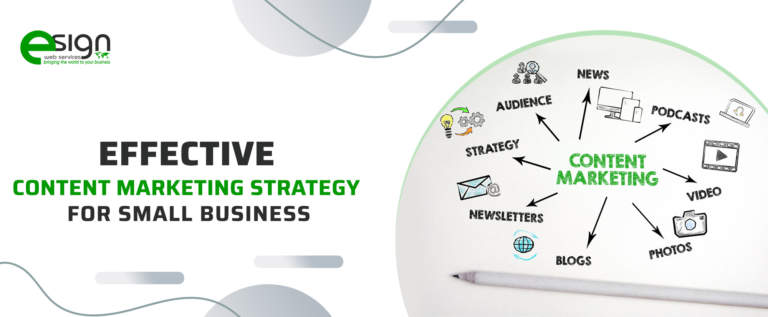
More than half of the marketers around the world believe that content marketing is the key to their online success. As of 2019, 76% of marketers take a strategic approach to managing their content. This explains the sudden surge in online competition in recent years.
From the design of your website to the placement of content, everything has its individual purpose, and all these elements affect ranking. Thus, it would help if you created a detailed content marketing strategy that will cover every nook of your website and optimize it for good. This becomes especially important for a newly formed small business that needs to develop a robust online presence.
How Will Content Marketing Help Your Small Business?
As you can understand from the above-mentioned statistics, consumers have a tendency of researching the product they want to purchase. On average, a buyer checks at least 3 to 5 pieces of content before deciding on what to get. So, if your content is not compelling enough, there are high chances that they will not purchase any product or service from you. Firstly, it is important that your target audience comes across your content.
Content marketing is the key to improving both the visibility and conversion rates of your website. Approximately 72% of marketers believe that content marketing increases engagement. Understand there are about 200 known ranking factors as of 2022 and you can cater to a significant amount of these by just creating an effective content strategy.
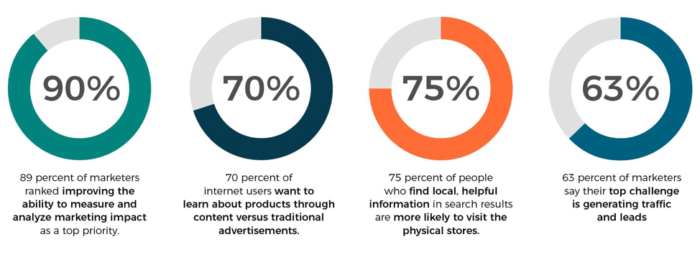
Steps to Create an Effective Content Marketing Strategy
Like any other plan, creating a flawless strategy for your website content also requires you to follow a proper procedure. The following steps will help you devise the most effective content marketing plan explicitly for your site.
Step 1: List Your Goals and Aims
Before you list what you need to do, you must know why you are doing it and be very sure about it. Hence, the first step to creating your small business content marketing strategy is listing down your aims and goals from this strategy.
Make sure your goals are SMART which stands for specific, measurable, attainable, relevant, and time-based. It is because arbitrary aims are hard to strategize for, and you will end up with no stable marketing plan.
However, you should also keep in mind that these goals that you set must be practical. For example, if you set an aim like “30 authoritative leads within 60 days”, it is absurd and practically not possible. Setting such inhumanely high standards will only disappoint you when you fail to complete them.
Step 2: Understand Your Audience and Competitors
Once you know what you want from the strategy, the next thing you need to locate is who will read it and who can pose a threat to your site. So, funnel out which kind of individuals would avail your products and who are already selling them in the market.
Your content should have elements that appeal to your audience while simultaneously setting you apart from the others. Understanding your competitors will also expose you to their mistakes, and you can eliminate them from your strategy even before facing any setback of your own. Also, your content marketing ideas will become more creative after you know what your audience likes to read and see.
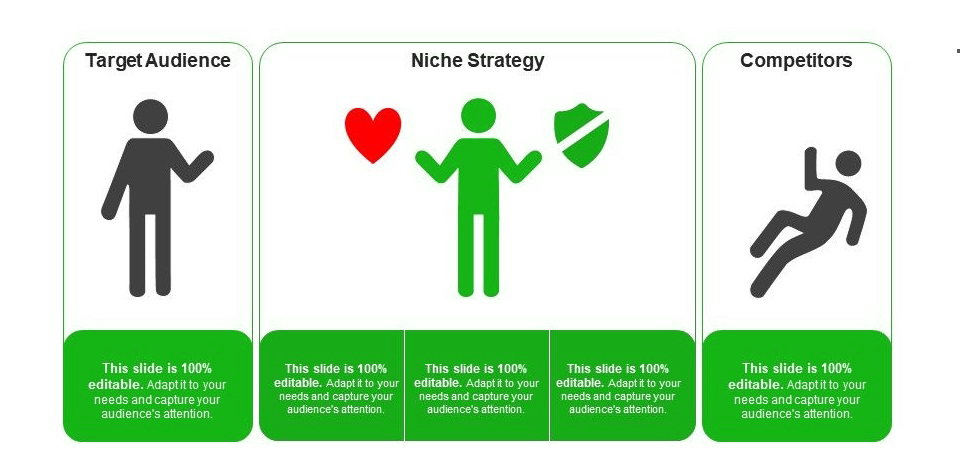
Step 3: Locate the Area Where You Can Perform the Best
You do not have to be the best at everything. Content marketing has several avenues, and you only need to choose the one that best suits your style. For example, if your business website performs the best with bright and high-quality pictures, do that. Trying to force anything else might ruin its effect.
However, this does not mean you will not use the other techniques in your strategy. Of course, you will, but not as intensely as that one thing which your audience happens to appreciate the most. You will also need to choose some key performance indicators to reflect how close you are to your goals. Some of these indicators are conversion rate, referral rate, unique page views, net revenue, etc.
Step 4: Develop Your Assets and Only Invest When Required
Every business has its weak and strong points which are unique. While working on and improving the weaker parts is crucial, it is even more important to develop your assets further. Through your research on your targeted audience, you will find information about what they react to and which type of content you should create.
As a small business, you need to be very stringent about where you invest your funds. So, take your time, and think if you need to pay for professional assistance or subscription-based SEO tools will suffice. This will save your capital and help you focus on the strongest parts of your website.
Step 5: Schedule Every Step of Your Content Marketing Plan
Scheduling every step you take towards framing your content marketing strategy is crucial. After collecting such an immense amount of information, you might feel the urge of combining everything together. However, everything has its own time, and jumping onto framing a plan will only create a mess.
Instead of posting content one after another, create a posting schedule and only publish your content likewise. This will infuse expectations in the minds of your audience, and they will be back following your content schedule in quest of new content again and again.
About 36% of content creators have a consistent workflow which separates them from the rest.
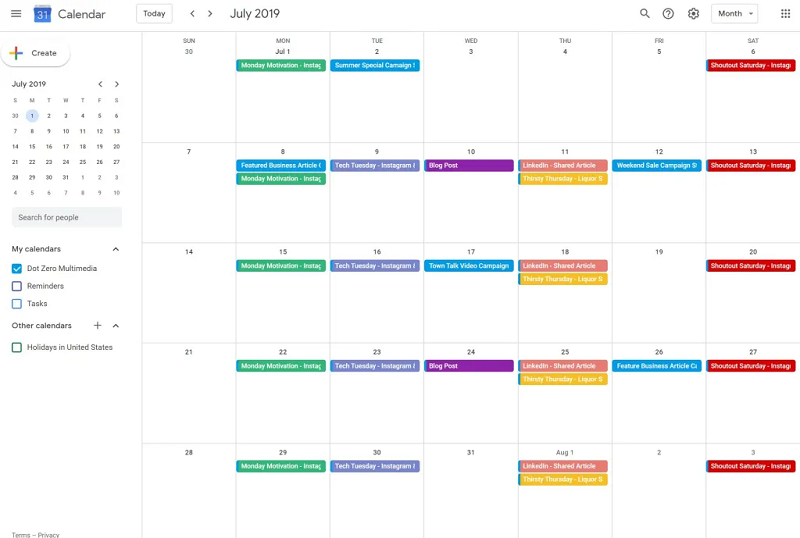
Step 6: Strategize a Promotional Plan
Content marketing in 2022 deals with things beyond the contents of your website. Now, to stand out and take a step ahead, you need a proper promotional plan as well. This is because writing impeccable content is of no use if your audience never even comes across them.
With thousands of websites being indexed every day, proper promotion is what can take your web pages to your concerned audience. This means you have to create a social media presence and share your content there. You can also invest in paid promotions on search engines and social media to garner the attention of your target audience.
Step 7: Conduct Content Auditing Routinely
Creating strategies is not enough if you want to maintain your position on the SERPs. Online trends and even the preferences of your audience can change with time. Hence, once you have a content marketing strategy, you must conduct SEO audits after a certain interval.
A routine audit will help you understand which parts of your strategy actually worked and which parts require further development. It will also guide you in the correct direction of updating your optimization strategy.
Some Great Content Marketing Strategies for Your Small Business
Companies that have been around in the market for years use their experience to devise different effective content marketing tactics. However, as a small business, you might face difficulties in doing so. Hence, here are some strategies that you can use when you begin your journey of content marketing.
- Create Shareable Content
According to Statista, there are about 6.37 billion smartphone users across the world, and this number will grow even more in the coming years. This popularity of smartphones has given rise to social media and the “Share” culture.
Individuals share anything and everything as long as it piques their interest. Hence, if you create interesting content that your visitors can share, you are indirectly getting your content promoted for free.
- Make Your Writing Style What Your Audience is Most Familiar With
Familiar things give off the sense of acknowledgment, which people like and appreciate. By using the kind of vocabulary your demographic generally uses, you tell them that your content is for them.
You can use cultural references, phrases they use, and even daily scenarios that only they can relate with. If you successfully manage to do that, you will see a surge of loyal viewers who are always there to consume your content and products.
- Share Your Content Across Platforms
Although your content marketing strategy should concentrate on creating pieces that your audience shares, you cannot just sit and wait for them to take action. Create social media accounts and make your presence known to your target audience by sharing your own content.
Companies even go as far as creating a unique persona to keep their audience entertained and intrigue them to share the posts.
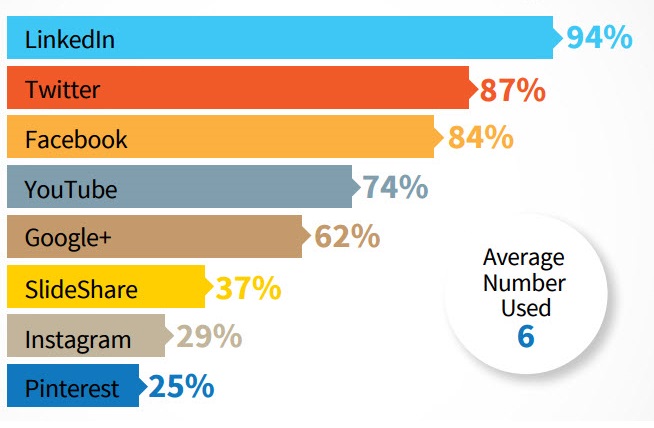
- Improve Content Presentation and Visuals
When discussing visuals, by no means should you randomly put images across your content. Instead, create an entire presentation with the proper flow by using relevant infographics, statistical graphs, data integrated images, etc.
A useless high-quality image will only make your web page load slow, which is not good for your site. Hence, understand the vitality of visuals in your content and try to convey information through that.
What to Look for in a Content Marketer?
Now that you know what you want and how you want them done in a content strategy, selecting the right content marketing company to assist you is the only part left. So, look for:
- Expertise in Your Subject Matter – Every agency has a particular type of website they excel at, and you need to find the one that is expert at handling the kind you are looking at.
- Branding Capabilities – The content on your website is a direct representation of your company’s ideologies and beliefs. Hence, the agency you select should have great branding capabilities to put forward the best possible image of your business.
- Quality of Work – Check their portfolio and case studies to see if they are able to produce what they promise.
Conclusion
Understand that optimization is not a one-time process but a layered effort that involves several techniques and tactics. It is important to follow a proper procedure of creating the plan to implement certain meaningful strategies. Lastly, as a small business owner, you must remember that content marketing strategies should not be your primary concern as you need to focus on your core business areas. So, it will be ideal to leave the content marketing and strategizing work to a professional digital marketing & SEO agency.
Regardless, this in-depth guide discussed some of the crucial steps to consider while devising an effective content marketing strategy.
Is there anything that you’d like to add? Let us know in the comments section below.


